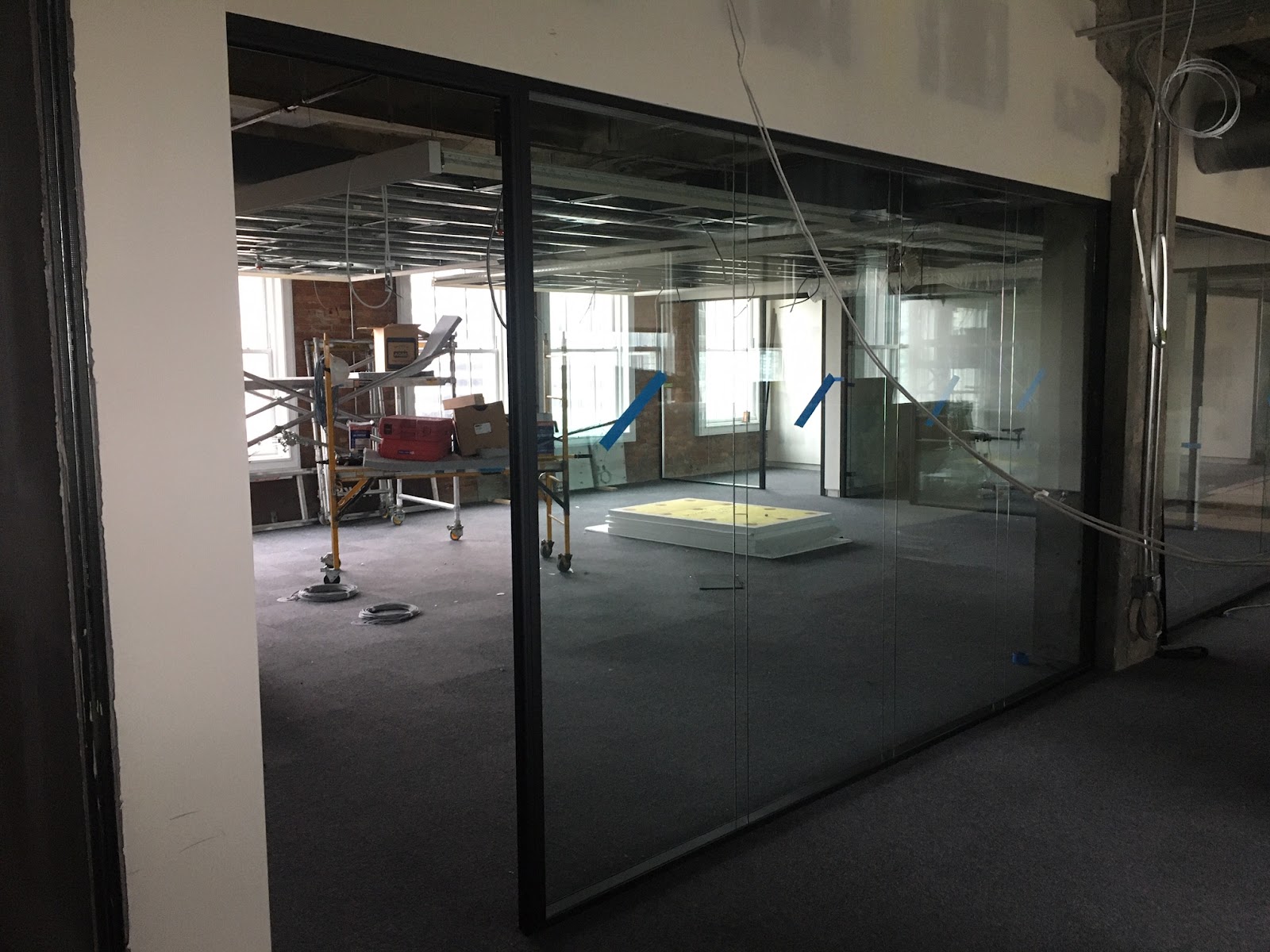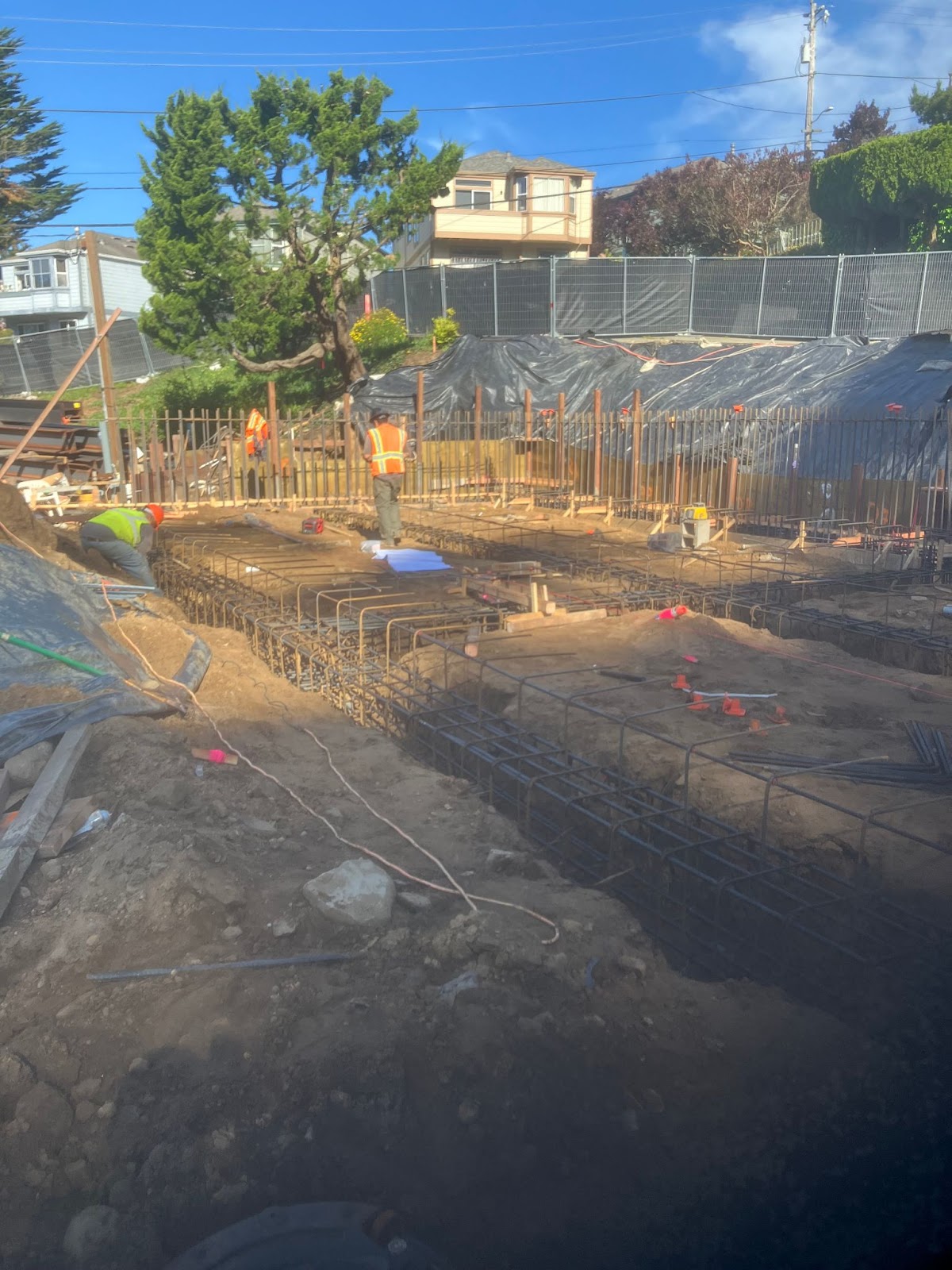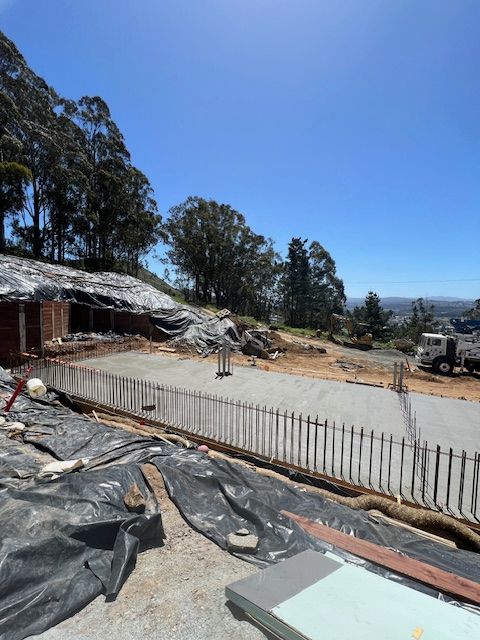Selecting the right developer can define the success or failure of your commercial real estate venture. When choosing a real estate developer, you’re not simply picking a contractor but a partner who will help turn your vision into reality.
The stakes are high, and the choices are many, making this decision one of the most crucial in the entire project lifecycle. Imagine embarking on a journey to transform a barren plot of land into a bustling commercial hub. The process involves countless decisions, from initial planning to the final build, and each step requires precision and expertise.
A skilled commercial construction contractor brings experience, creativity, and reliability, ensuring your project meets and exceeds expectations. Without the right developer, you risk delays, cost overruns, and a subpar final product that fails to attract tenants or clients.
The path to choosing a real estate developer involves thorough research, careful evaluation, and a bit of intuition. You must sift through portfolios, scrutinize financials, and meet with potential partners to gauge their compatibility with your vision.
Don’t take this decision lightly. With the right approach, you will find a developer who aligns with your goals and brings your commercial real estate dreams to life.
Understand your project needs
First, outline your project’s specific requirements. Are you building an office complex, retail space, or industrial park? Each type has unique needs and challenges. Knowing your project’s scope helps narrow down the list of potential developers.
Consider the project’s size, timeline, and budget. Clearly defining these aspects from the start allows you to communicate your vision effectively to potential developers, ensuring they understand and are able to meet your expectations.
Research developers’ experience
Experience matters a lot in commercial real estate. Look for developers with a solid track record in projects similar to yours. Check their portfolio and ask for references. Speak with past clients to get insights into the developer’s reliability, quality of work, and ability to meet deadlines.
Evaluate the variety and complexity of their past projects. Developers who have tackled various challenges are more likely to adapt and find innovative solutions for your project.
Check their financial stability
A developer’s financial health directly impacts your project. You want someone who has the resources to handle unexpected costs and delays. Ask for financial statements and look at their past projects.
A financially stable developer brings peace of mind, knowing they won’t cut corners to save money. Investigate their relationships with banks and financial institutions. Strong financial backing often translates to better project funding and smoother progress from start to finish.
Assess their team
A good developer has a strong team of architects, engineers, project managers, and specialists. Meet the team members who will work on your project. Ensure they have the necessary skills and experience. A cohesive team works more efficiently and produces better results.
Look at how well the team communicates and collaborates. A team that communicates effectively will quickly address issues and keep the project on track, ensuring seamless progress from planning to completion. Also, consider the team’s past projects together.
Teams with a history of successful collaborations bring a proven dynamic and trust, which may be critical in navigating complex projects and achieving high-quality outcomes.
Review their project management skills
Project management skills are crucial in commercial real estate development. The developer should have a proven process for managing timelines, budgets, and quality. Ask about their approach to handling issues that arise during the project. Effective project management minimizes delays and keeps costs in check.
Consider their local knowledge
Local knowledge is invaluable in commercial real estate. Developers who understand the local market, regulations, and zoning laws navigate the process more smoothly. They are able to anticipate potential issues and know how to deal with them. This local expertise can save you time and money.
Evaluate their communication skills
Good communication keeps a project on track. Your developer should provide regular updates and be readily available to address concerns. They should explain technical details in a way you understand. Clear communication builds trust and ensures everyone is on the same page.
Verify their legal compliance
Ensure your developer complies with all local, state, and federal regulations. Check their licenses and certifications. A developer who cuts corners on legal requirements can cause major headaches down the road. Legal compliance protects your investment and reputation.
Look for innovation and sustainability
Innovation and sustainability are becoming more important in commercial real estate. A developer who uses the latest technologies and sustainable practices adds value to your project. Ask about their experience with green building techniques and energy-efficient designs. Sustainable projects attract tenants and reduce long-term costs.

Consider their reputation
A developer’s reputation says a lot about their work ethic and reliability. Look for reviews and ratings online. Ask for testimonials from previous clients. A reputable developer consistently delivers high-quality projects and treats clients with respect.
Investigate their standing within the industry by checking for awards or recognitions. Participation in professional organizations and community involvement indicates a developer’s commitment to excellence and ethical standards.
Speak with industry peers and local business owners to gain a broader sense of the developer’s reputation and their perception within the commercial real estate community.
Evaluate their problem-solving abilities
Problems will arise during any real estate project. How a developer handles these issues makes a big difference. Ask for examples of challenges they’ve faced and how they resolved them. A good problem solver stays calm under pressure and finds practical solutions quickly.
Assess their adaptability
The real estate market is dynamic. Your developer should adapt to changing circumstances and unexpected challenges. Ask about their experience with projects that faced significant changes. An adaptable developer keeps your project moving forward, even when things don’t go as planned.
Analyze their cost estimates
Accurate cost estimates are crucial in commercial real estate. Ask for detailed breakdowns of their cost estimates and compare them with other developers. Look for transparency in how they calculate costs. Reliable cost estimates prevent budget overruns and keep your project financially viable.
Examine the assumptions and contingencies included in their estimates. A thorough developer considers potential risks and includes allowances for unexpected expenses. Request a timeline of payments and milestones to understand the financial flow throughout the project.
This helps you plan your budget effectively and ensures there are no financial surprises down the line.
Inspect their completed projects
Visit some of the developer’s completed projects. Seeing their work firsthand gives you a better idea of their quality and attention to detail. Talk to current tenants or owners about their experience with the developer. Firsthand accounts provide valuable insights.
Understand their post-construction services
The developer’s involvement shouldn’t end once construction is complete. Ask about their post-construction services. Do they offer maintenance, repairs, or tenant support? A developer who provides ongoing services ensures your project remains in top condition.
Check if they offer regular inspections and updates to the building systems. Knowing their response time for emergency repairs can save you significant headaches in the future. Look into their track record for handling warranty claims and the quality of their follow-up work.
A reliable post-construction service provider helps you maintain property value and tenant satisfaction over the long term.
Consider their pricing structure
Different developers use various pricing structures. Some charge a fixed fee, while others use a percentage of the project cost. Understand how your developer charges and what their fees include. Compare pricing structures to find one that aligns with your budget and project needs.
Gauge their enthusiasm
A developer who shows genuine interest in your project is more likely to deliver excellent results. Look for someone who asks thoughtful questions and provides creative ideas. Their enthusiasm reflects their commitment to making your project a success.

Check their safety record
Safety is paramount in commercial real estate development. Review the developer’s safety record and policies. A strong safety culture minimizes accidents and ensures a smooth construction process. Ask about their safety training programs and compliance with safety regulations.
Investigate how they handle safety incidents and their procedures for reporting and mitigating risks. Look for certifications or awards related to safety to gauge their commitment to maintaining a secure work environment.
Ensuring they follow industry best practices for safety protects workers and safeguards your investment from costly delays and legal issues.
Assess their relationship with subcontractors
Developers rely on subcontractors for many aspects of a project. A good developer has strong relationships with reliable subcontractors. Ask about their selection process for subcontractors and how they manage them. Good relationships ensure high-quality work and timely completion.
Look for a transparent contract
Your contract with the developer should be clear and comprehensive. Review it carefully to understand the terms and conditions. Look for transparency in the scope of work, timelines, payment schedules, and dispute resolution. A clear contract protects your interests and prevents misunderstandings.
Pay attention to the clauses related to changes in scope and unforeseen circumstances. Ensure there are clear protocols for handling delays and additional costs. Consult a legal expert to confirm that the contract covers all necessary legal protections and clearly defines each party’s responsibilities to avoid future conflicts.
Seek recommendations
Word-of-mouth recommendations are powerful in the real estate industry. Ask colleagues, friends, or industry professionals for recommendations. They can provide valuable insights and point you to reliable developers.
Online forums and professional associations offer advice from a broader network of peers. Combining personal recommendations with professional insights helps you compile a list of trustworthy candidates, enhancing your chances of finding the right partner for your project.
Evaluate their design capabilities
A developer’s design capabilities impact the functionality and appeal of your project. Look at their previous designs and ask about their design process. A developer who collaborates with skilled architects and designers creates spaces that meet your needs and attract tenants.
Assess how they incorporate modern design trends and sustainability into their projects. Examine their ability to balance aesthetics with practicality, ensuring the space is visually appealing and functional. Discuss their approach to customization and flexibility in design to ensure they are able to adapt to your specific requirements and vision.
Understand their timeline
A realistic timeline is crucial for project success. Ask the developer about their estimated timeline and compare it with that of other developers. Ensure their timeline aligns with your project goals. A developer with a track record of meeting deadlines is a valuable partner.
Check for technology integration
Technology integration can streamline the construction process and improve project outcomes. Ask about the developer’s use of construction management software, Building Information Modeling (BIM), and other technologies. Technology-savvy developers enhance efficiency and accuracy.
Assess their customer service
Customer service is an essential aspect of choosing a real estate developer. Evaluate their responsiveness, willingness to address concerns and overall professionalism. A developer who values customer service builds strong client relationships and ensures a smoother project experience.
Investigate their industry connections
A well-connected developer has access to valuable resources and information. Ask about their industry connections and memberships in professional organizations. Strong industry ties provide advantages like better subcontractor options and updated market insights.
Consider their flexibility
Flexibility is vital in commercial real estate projects. Developers should adapt to changes in project scope, design, or budget. Ask about their experience with flexible project management and willingness to accommodate changes.
Evaluate their warranty policies
Warranty policies protect your investment by covering defects or issues after project completion. Ask about the developer’s warranty policies and the coverage they offer. A strong warranty policy reflects the developer’s confidence in their work quality.
Investigate the duration of their warranties and the specific components they cover, such as structural integrity, electrical systems, and plumbing. Check how the developer handles warranty claims and their response time to address issues.
Comprehensive warranty policies provide peace of mind and indicate the developer’s commitment to long-term client satisfaction and project durability.
Look at their community involvement
Developers involved in their community often have a better understanding of local needs and preferences. Ask about their community involvement and support for local initiatives. Community-minded developers are more likely to create projects that benefit the local area.
Seek legal advice
Before finalizing your choice, consult with a real estate attorney. They will review contracts, verify legal compliance, and provide valuable advice. Legal advice protects your interests and helps you make an informed decision.
Make your decision
After thorough research and evaluation, choose the developer who best meets your project needs. Trust your instincts and consider all factors discussed. The right developer will help you achieve your project goals and create a successful commercial real estate development.
Monitor the project closely
Your involvement doesn’t end with choosing a developer. Stay engaged throughout the project. Monitor progress, attend meetings, and communicate regularly with the developer. Active involvement helps you address issues early and ensures the project stays on track.

Learn from the experience
Each project provides valuable lessons. Reflect on your experience with the developer and the project as a whole. Identify areas for improvement and apply these insights to future projects. Continuous learning enhances your ability to choose the right developer and manage successful projects.
Choosing a real estate developer for your commercial project is a decision that holds immense weight. The developer you select will shape the trajectory of your entire project. You’ve navigated through the key factors, from financial stability to project management skills, and now it’s time to trust the process.
Finding the right partner can transform your vision into a thriving reality, but it requires careful consideration and commitment.
Think about the journey ahead. Your project will evolve from blueprints to a bustling hub of activity. Each decision along the way will impact the outcome. With a skilled developer, you won’t only meet your project goals; you’ll exceed them. This isn’t about avoiding pitfalls; it’s about achieving greatness.
A good developer brings more than technical skills — they bring creativity, problem-solving, and dedication.
As you finalize your choice, take confidence in the thoroughness of your research. You’ve done your homework, asked the tough questions, and weighed your options carefully. The right developer will meet your needs and be a true partner in bringing your commercial real estate vision to life.
With their expertise and your vision, the sky’s the limit. The success of your project is right around the corner, ready to be realized through this pivotal partnership.
Partner with LWG Construction
When embarking on your next commercial construction venture, selecting the right firm is crucial for success. LWG Construction delivers precision, expertise, and an unwavering commitment to excellence. We grasp the intricacies of commercial projects, from initial planning and budgeting to execution and final handover.
Our team of contractors prioritizes clear communication and innovative solutions tailored to your specific needs.
Don’t compromise when you can choose the best. Connect with LWG Construction today and experience the professionalism and meticulous attention your project demands. Let us bring your vision to life, on schedule, and within budget. Contact us now to begin your successful construction journey.